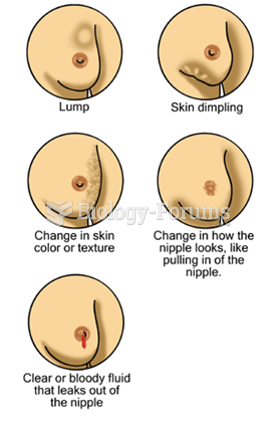This topic contains a solution. Click here to go to the answer
|
|
|
Did you know?
Lower drug doses for elderly patients should be used first, with titrations of the dose as tolerated to prevent unwanted drug-related pharmacodynamic effects.
Did you know?
There are more bacteria in your mouth than there are people in the world.
Did you know?
If you could remove all of your skin, it would weigh up to 5 pounds.
Did you know?
Critical care patients are twice as likely to receive the wrong medication. Of these errors, 20% are life-threatening, and 42% require additional life-sustaining treatments.
Did you know?
People about to have surgery must tell their health care providers about all supplements they take.






